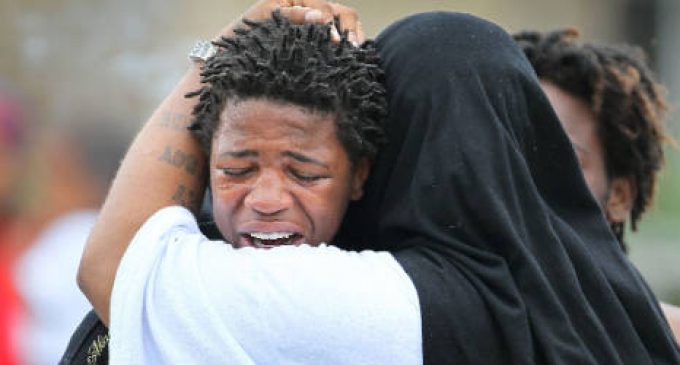Editorial: ‘If They Are Black’

The Reverend Dr. Darryl Aaron, our pastor at First Baptist Church, Highland Avenue, is black.
He and his family live about two blocks from our family, in a neighborhood that is predominately white. When an unarmed black teenager named Michael Brown was shot by a policeman in Ferguson, Mo., I recalled the warning that Reverend gave his teenage son Noah two years ago when an unarmed black teenager named Trayvon Martin was shot outside a Florida apartment complex.
Recently, he rehearsed again the cautions he gave his son then and now. It is a list he repeats continuously, whatever the national news may bring.
• “Don’t go jogging after dark in our neighborhood, even with your white friends.”
• “Don’t wear a hoodie.”
• “Don’t cut across anybody’s yard, even if your white friends do.”
• “Never leave a store without a receipt.”
• “Never, ever, run out of a store.” (He made that rule when his son was 8.)
Rev. Aaron wonders if Noah will someday demand: “Why did you move us into that neighborhood and make us live like that?” He concludes, ominously: “These are the hidden lives of (even ‘privileged’) black kids.”
Reflecting on those realities and exacerbated by the Michael Brown shooting and its accompanying saga, Washington Post writer Eugene Robinson comments: “But such tragedies are just the visible manifestation of a much larger reality. Most, if not all, young men go through a period between adolescence and adulthood when they are likely to engage in risky behavior of various kinds without fully grasping the consequences of their actions. If they are white — well, boys will be boys. But if they are black, they are treated as men and assumed to have malicious intent.”
The phrase, if they are black, is a striking commentary on American history in general and American religious history in particular. Statistics extend the story. A 2007 study from Colorlines and The Chicago Reporter surveyed media reports of police-related shootings and found that “African-Americans were overrepresented among police shooting victims in every city the publications investigated.”
In Ferguson, International Business Times observed, the arrest rate for black citizens is four times that of white citizens. In a study of FBI data of “justifiable homicide,” USA Today reported that between 2005 and 2012 a black person was killed by a white police officer an average of twice a week in the U.S.
African-American clergy and congregations in and around Ferguson rose to the occasion, working diligently to provide pastoral care for a hurting family and community, coordinating peaceful demonstrations, urging non-violent resistance. Many churches served as prophetic presence and community caregiver simultaneously. Indeed, in 2014, congregations throughout America continue to work diligently across racial and ethnic divides through shared ministry, community engagement, and common prayer and worship. Yet in these traumatic national moments, how do we renew commitment to conversation, not only about shared faith, but about race, racism, and the nature of the gospel? In the aftermath of Ferguson, perhaps it is less immediately important that our churches be integrated than that we recommit ourselves to listening to one another.
Interracial listening has never been easy. Indeed, in Ken Burns’ documentary, “Twain,” long time civil rights activist Dick Gregory says Mark Twain’s 1883 novel Huckleberry Finn was the first book to “put a face on black folks.” Before that, Gregory observes, “no [white person] ever had to listen to a conversation from a black person.”
As Jim the runaway slave “talked out loud” while he and Huck floated down the Mississippi, Mark Twain “took a black person and made them a human being.” “I guess Jim misses his family the way white folks do their’n,” Huck says, listening like nobody in American literature had ever listened to a black man before. And as he did, Huckleberry Finn unlearned racism. In the end Huck decides “All right, then, I’ll go to hell,” rather than send Jim back to slavery. Would that we all learned to listen so courageously.
Truth is, America as a nation, and the Church as the Body of Christ still live somewhere between Jim and Huck, Trayvon and Michael. Where race and racism are concerned, “we’re still not listening. And until we come to terms with “the hidden lives of Black kids,” we’ve got a lot of gospel to go.
Bill J. Leonard is James and Marilyn Dunn Professor of Baptist Studies and Church History at the School of Divinity, Wake Forest University. This essay originally appeared in Associated Baptist Press-Herald.













